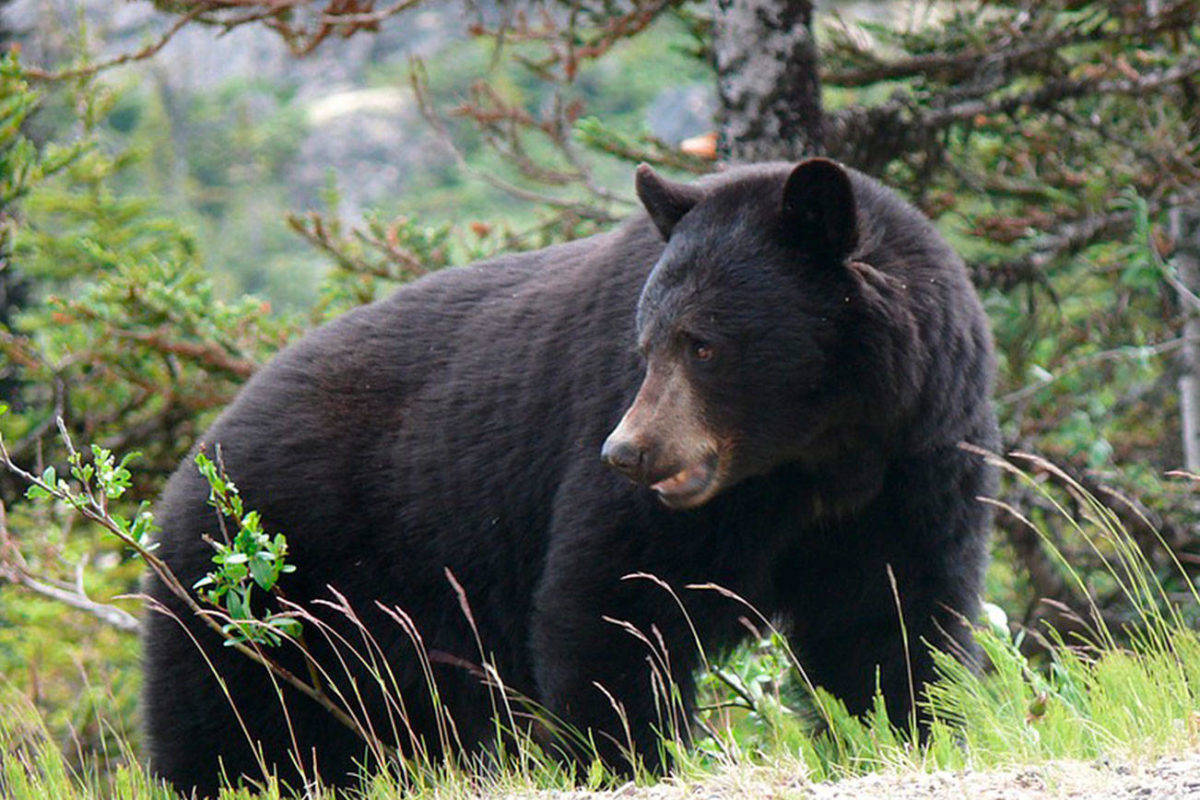In September, the B.C. Conservation Officer Service was called 5,070 times about black bears. They attended 500 of those calls and euthanized 142 black bears.
Now, a former conservation officer is calling for changes to the way BCCOS handles conflicts between humans and predators.
Bryce Casavant lost his job with BCCOS in 2015 after he refused to shoot two black bear cubs. Since then, Casavant has been in arbitration to get his job back and he’s been a vocal critic of the conservation service, specifically for their management of black bears.
RELATED: Bryce Casavant transferred from Conservation Officer Service
RELATED: Former BC conservation officer feels vindicated after appeals court nullifies dismissal
Casavant blames the structure of the BCCOS for the number of black bears killed. When the public sees wildlife in their area, they’re encouraged the call the Report All Poachers and Polluters (RAPP) line, but Casavant said managing wildlife isn’t the job of the conservation service.
He said the primary role of the BCCOS is to be provincial environmental police that crackdown on bad behaviour from humans. He believes that as a policing agency, the BCCOS is more likely to look at black bears as a public safety issue than a wildlife management issue.
RELATED: Fewer dead bears, more fines: Advocates call for B.C. conservation officer reform
“The constabulary is not responsible for wildlife management… The majority of those RAPP line calls should be dealt with by the Ministry of Forests in partnership with their biologists and bylaw enforcement at the municipal level. We don’t need armed police in our constabulary services performing the function of wildlife management.”
A bulk of the calls that come through the RAPP line are wildlife management-related and do not result in a conservation officer attending the call. However, roughly 20 per cent of black bear calls that conservation officers do respond to result in bears being killed.
According to provincial statistics, 121 black bears were euthanized in September last year, 95 were euthanized in 2019 and 95 in 2018.
September often sees the highest number of black bear deaths as bears prepare to hibernate for the winter, increasing the likelihood of conflicts with humans. For comparison, 74 bears were euthanized in August and only 14 in July.
But Mike Badry, a wildlife biologist and provincial wildlife conflict manager with the BCCOS, said that the public should report wildlife sightings to the RAPP line and contends the BCCOS does a good job in handling black bear conflicts.
“If we don’t get those calls until a bear has become highly habituated or highly food-conditioned it becomes much more difficult to do anything proactive with that bear.”
RELATED: Black bears need wild food, not Vancouver Island garbage
Badry said when calls come to the RAPP line, conservation officers perform an initial assessment of public safety risk and animal welfare to determine whether officers attend a call. Once on scene, they evaluate the bear’s behaviour and physical condition to determine if the bear is a public safety risk or if the bear is well enough to survive in the wild.
For example, if a bear has wandered into a community and cannot find its way out, officers may use short-distance relocations to get the bear away from a community. But if a bear shows indifference to humans, aggressive behaviours or signs of being food-conditioned, the bear is not a “candidate for relocation”. At that point, conservation officers prioritize public safety and will likely euthanize the bear.
Depending on the situation, conservation officers can respond with a number of tools including firearms like pistols, rifles, or less-lethal options like tranquillizer guns. It is up to officers in the field to make that determination.
“If a bear must be destroyed in the interest of public safety, this is carried out as humanely as possible,” the ministry of environment said in a statement to Black Press Media.
RELATED: Bear ‘destroyed’ as sightings continue in Golden
The BCCOS is often criticized by the public on social media, with some calling for alternatives to euthanization for bears. Badry argued that the criticism of conservation officers is unwarranted instead putting the onus on the public to secure bear attractants.
“There is no conservation officer that enjoys killing any wildlife due to conflict. That is not what they sign up for. The issue is not the fact that conservation officers are killing this number of bears, the issue is this number of bears is still getting access to human food sources.
“We need to be more proactive in managing the conflict, but that has to be done by the communities, the residents and the businesses.”
Since the beginning of 2021, 369 black bears have been euthanized.
RELATED: WildSafeBC explains how to avoid bear encounters
@SchislerCole
cole.schisler@bpdigital.ca
Like us on Facebook and follow us on Twitter.
Want to support local journalism? Make a donation here.

